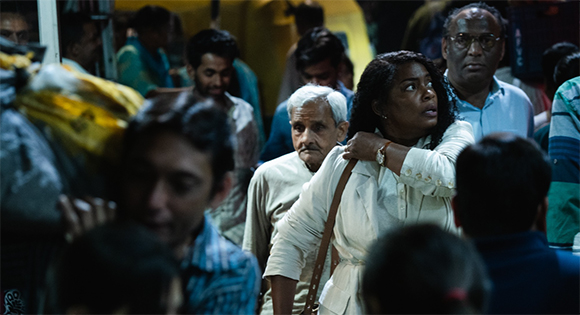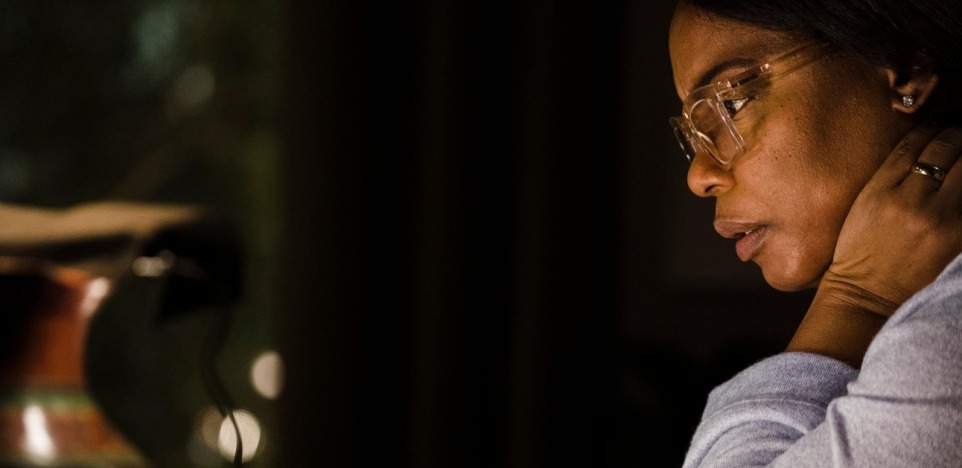Caste by Isabel Wilkinson was one of Spirituality & Practice’s choices for a Best Spiritual Book of 2020. This film could be called the origin story of that bestselling nonfiction book. Directed by Ava DuVernay (13th, Selma), it stars Aunjanue Ellis-Taylor as Wilkinson during the period when she came up with her thesis for Caste and researched it in America’s South, Germany, and India.
The film opens with a re-creation of the murder of Black teenager Trayvon Martin (Myles Frost) by George Zimmerman, a white neighborhood watch volunteer. Isabel’s editor friend (Blair Underwood) urges her to write about the case, building upon her status as the first African-American writer to win the Pulitzer Prize in journalism. But she is taking a break from writing while taking care of her mother (Emily Yancy). Her husband (Jon Bernthal) is supportive of any decision she makes.
After two personal tragedies, Isabel, deep in grief, is ready to begin a new project. She finally listens to the 911 calls from Zimmerman about Trayvon Martin. She decides this incident and the larger story it is part of point to caste as a root cause rather than racism. (In the book, caste is defined as “the granting or withholding of respect, status, honor, attention, privileges, resources, benefit of the doubt, and human kindness to someone on the basis of their perceived rank or standing in the hierarchy.”)

Isabel travels to Germany to learn how the Nazis studied America’s division of body types under slavery as they were formulating the rationale for the genocide of the Jews. In India, she meets with Dalit (formerly called untouchables) activists about how caste affects their daily lives.
These examples of her research are supplemented by personal stories and reenactments that reveal how history can be written on a person’s body and soul. One man recounts how the only Black boy on his Little League team was not allowed to join them for a pool party. Only after all the whites get out can he go in the water and then only on a float with the instruction to not let his hands touch the water.
In another scene, one of Isabel’s friends tells the story of a childhood experience of racism. Actor Audra McDonald gives such a powerful performance here that the pain of that moment and its lingering impact are seered into our hearts.
At the end of our review of Caste, we said that it “makes a solid case for why we need a dignitarian movement based on reverence for the personhood of all people.” Origin seconds that motion while also showing us how an author can take an idea and turn it into a life purpose.
